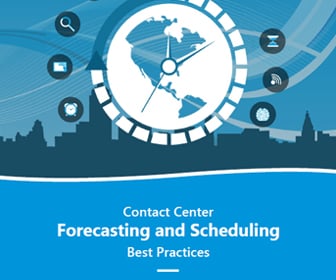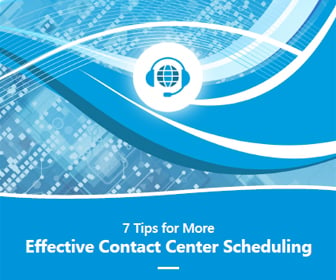Workforce Management Featured Article
Employee Engagement Has Less to Do With Employees and More to Do With Management Quality
In an effort to raise the level of engagement that today’s workers feel with their jobs, companies are finding easy answers are not possible. What motivates a young, single worker, for example, may not be the same thing that motivates an employee with a family of young children, or an older worker with an “empty nest.” For this reason, employee engagement plans often need to be customized for the workers. It’s tempting to write the whole process off as too complex – anything rooted in psychology and sociology is going to be a hard and perhaps expensive project to undertake. But there is a lot of evidence that employee engagement improves outcomes across the board: it reduces employee churn, it raises productivity, it increases customer engagement and it adds to the company’s bottom line.
One of the most important elements of employee engagement has less to do with the concrete benefits such as pay and schedule and more to do with how organizations train and deploy managers across the company. The amount of faith a worker has in his or her manager is also important. Is the manager fair? Does the manager play favorites? Does he or she give credit where credit is due, or does the manager have a habit of taking credit for himself? These questions are possibly the most important determinants of employee engagement, according to a recent article by MIT (News - Alert) Sloan researchers Matthias Seifert, Joel Brockner, Emily C. Bianchi, and Henry Moon.
“One of the crucial prerequisites for workforce well-being is that employees feel they can trust their line managers,” wrote the paper’s authors. “Trust in decision-making authorities fundamentally shapes employees’ expectations about how they will be treated in the future — in terms of both what the authorities are likely to do and how they will execute their decisions. The more trust employees have in their managers, the more likely the employees are to expect organizational outcomes to be favorable and the more likely they are to expect that the procedures used by authorities to plan and implement decisions will be fair.”
The problem is that few workers today feel trust in the amount of fairness doled out by managers. In a busy contact center, managers may not have the time to customize employee engagement plans or even ensure they are applying rules or credit fairly. One study cited by MIT researchers found that interacting with managers is the least pleasant moment of most workers’ days. Workers who perceived that their managers are biased are less likely to enjoy their jobs and be loyal to their companies. In a contact center setting, this means workers are less empathetic to customers, less invested in finding an ideal positive outcome for the customer, and less likely to meet any personal or organizational goals. The researchers theorized that this leads to a downward spiral of quality.
“The relationship between workers’ trust in decision-making authorities and their commitment toward the organization is a self-perpetuating one: According to several studies, untrusting employees who show a low level of commitment are likely to be treated less positively by their superiors, which in turn discourages the employees from being more committed,” they wrote.
So how do companies pull themselves out of this cycle? For starters, by hiring managers with proven track records of being able to consistently and fairly help workers align their professional goals with those of the company. Managers who are hard-nosed and “take no prisoners” may achieve short-term positive results out of fear and bullying, but workers will seldom stick around long enough to help the company achieve long-term goals (like improving customer engagement). Look for managers who employ a positive approach to managing workers. These are managers who are “people-oriented” and understand how to motivate workers in a positive way. Ensure they have the time to meet with individual employees regularly and build a formalized path to success for workers. When employees feel that their managers “have their back” and are actively trying to help them succeed, they will reward their employers with their best efforts.
Edited by Stefania Viscusi







